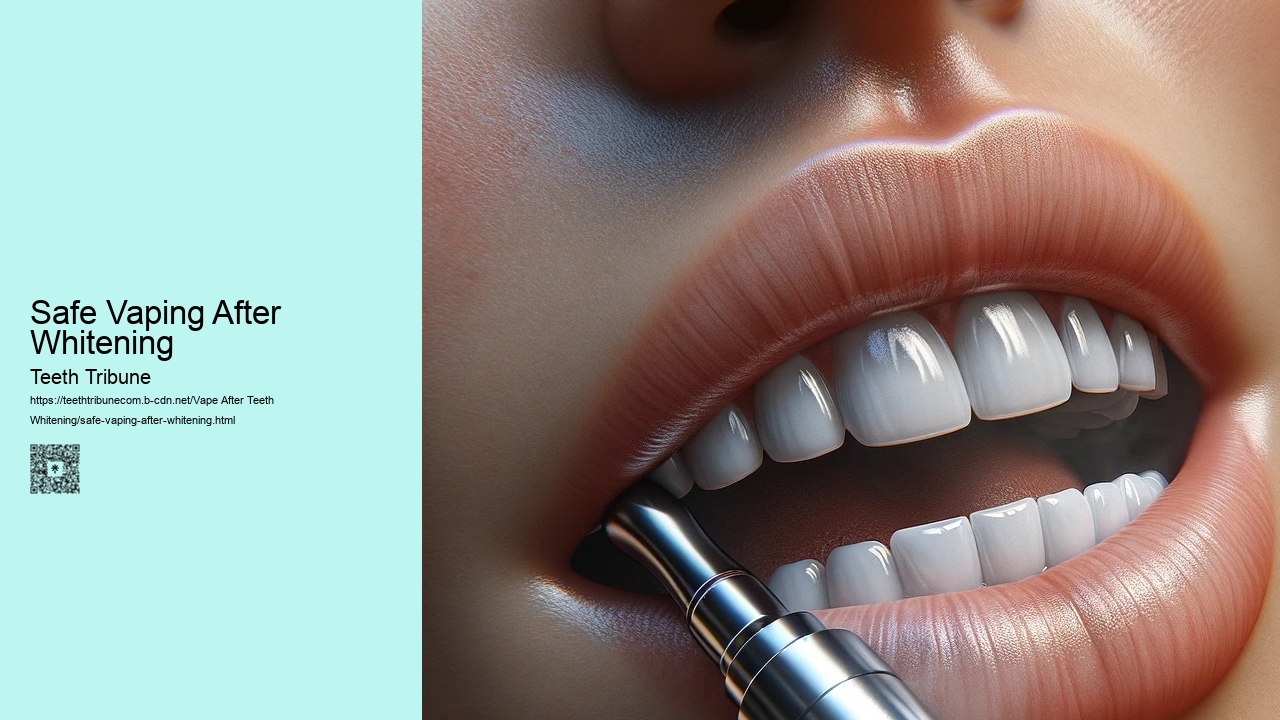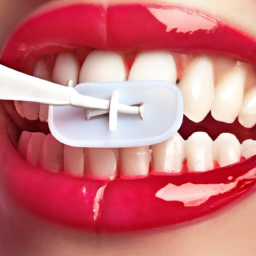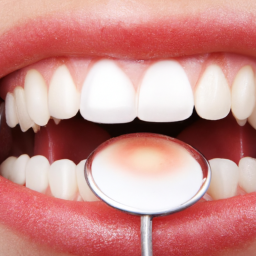

Charcoal whitening products, such as toothpaste and powders, have become popular for their claimed teeth whitening benefits. Activated charcoal is believed to absorb stains and toxins from the teeth, leading to a brighter smile. However, it’s important to use these products with caution.
While some users report positive results, charcoal's abrasiveness can potentially damage tooth enamel if used too frequently or vigorously. It’s advisable to use charcoal whitening products sparingly and to choose formulations that are proven to be safe and effective.
Consulting with a dentist before using charcoal whitening products is recommended, especially for vapers. A dental professional can provide advice on the safest and most effective whitening methods based on individual oral health conditions.
Bleeding GumsOver-the-counter teeth whitening products offer convenience, but they come with potential risks. These products, including strips, gels, and trays, contain bleaching agents that can cause tooth sensitivity and gum irritation if used improperly. It's important to follow the instructions carefully and to use these products moderately.
Some individuals, particularly those with pre-existing dental issues or sensitivities, may experience adverse effects from these products. For vapers, the interaction between whitening agents and vape chemicals can also pose additional risks.
For a safer whitening experience, it’s advisable to consult with a dentist before starting any over-the-counter whitening regimen. They can recommend products that are suitable for your specific dental health needs and provide guidance on how to use them safely.
Home remedies can be a natural and cost-effective way to address tooth stains, especially for vapers. Common methods include baking soda, which acts as a mild abrasive to gently scrub away surface stains, and hydrogen peroxide, known for its whitening properties.
Apple cider vinegar is another popular remedy due to its natural bleaching effect. However, it should be used sparingly as its acidity can erode enamel over time. Oil pulling with coconut oil can also help remove toxins and improve overall oral hygiene.
While these home remedies can be effective for minor staining, they are not a substitute for professional dental care.

Coffee drinkers often face the challenge of teeth staining due to the dark pigments in coffee. Teeth whitening options for coffee enthusiasts range from professional treatments, such as in-office bleaching, to at-home remedies like whitening toothpaste and strips.
To prevent coffee stains, it's advisable to rinse the mouth with water after drinking coffee and to use a straw to minimize contact with teeth. Regular brushing and flossing also play a critical role in maintaining a brighter smile.
For coffee drinkers who vape, it’s especially important to consider whitening options that are effective yet gentle on the teeth, as vaping can exacerbate sensitivity. Consulting with a dentist can provide tailored advice for maintaining a bright smile despite these lifestyle habits.
Vaping can contribute to dental plaque buildup due to the ingredients in e-liquids, such as vegetable glycerin and propylene glycol, which can adhere to teeth. This buildup, if not properly managed, can lead to tooth decay and gum disease.
To combat plaque, regular and thorough brushing is essential, focusing on all surfaces of the teeth and along the gum line. Using an electric toothbrush can be particularly effective in removing plaque. Flossing daily is also crucial to remove plaque and food particles from between the teeth.
Regular dental checkups and cleanings are important for vapers to remove plaque buildup and monitor oral health. During these visits, dentists can provide professional cleanings and personalized oral hygiene advice.


Vaping can affect saliva production, leading to dry mouth (xerostomia). Saliva is vital for neutralizing acids, remineralizing enamel, and washing away food particles. Reduced saliva production increases the risk of tooth decay and gum disease.
To counteract dry mouth, staying hydrated is key. Drinking water regularly can help maintain saliva flow. Sugar-free chewing gum or lozenges can also stimulate saliva production. Avoiding high-temperature vaping can further reduce the risk of dry mouth.
Regular dental visits are important for vapers to address any issues related to saliva production. Vape Juice Dentists can offer specific recommendations and treatments to help manage dry mouth and maintain oral health.
Oral cancer screening is an essential preventive measure, especially for individuals who vape. Vaping, like smoking, can expose the mouth to potentially harmful substances that may increase the risk of oral cancer. Regular screenings can help detect early signs of cancer when it is most treatable.
During a dental checkup, the dentist can perform a thorough examination of the mouth, including the lips, tongue, throat, and gums, for any signs of abnormal tissue changes. They may also inquire about any symptoms like sores that don't heal, lumps, or difficulty swallowing.
Vapers are encouraged to schedule regular dental checkups for oral cancer screening and to discuss their vaping habits with their dentist. Early detection through regular screenings is key to effective treatment and better outcomes.
It's recommended to wait at least 24-48 hours before vaping after teeth whitening. Vaping too soon can interfere with the whitening process and potentially lead to uneven results or re-staining of the teeth.
Generally, it is safe for vapers to use teeth whitening products. However, it’s important to follow the product instructions and consult with a dental professional for personalized advice. Regular vapers might need more frequent whitening treatments to combat potential staining from vaping.